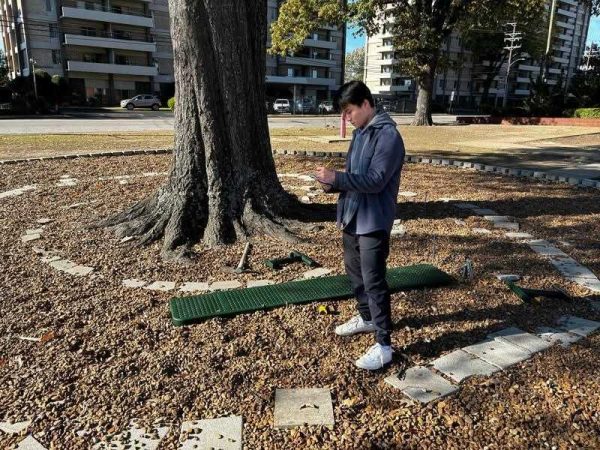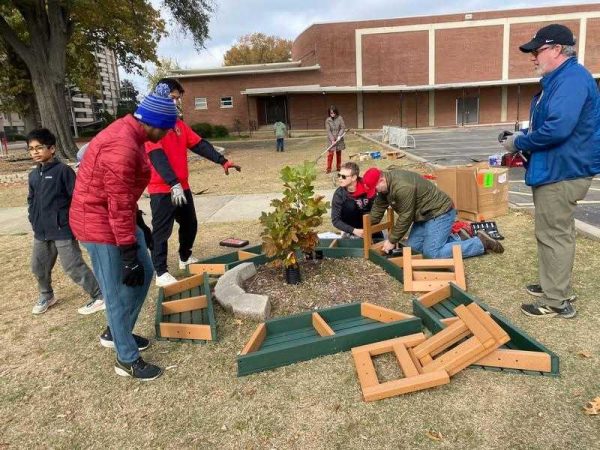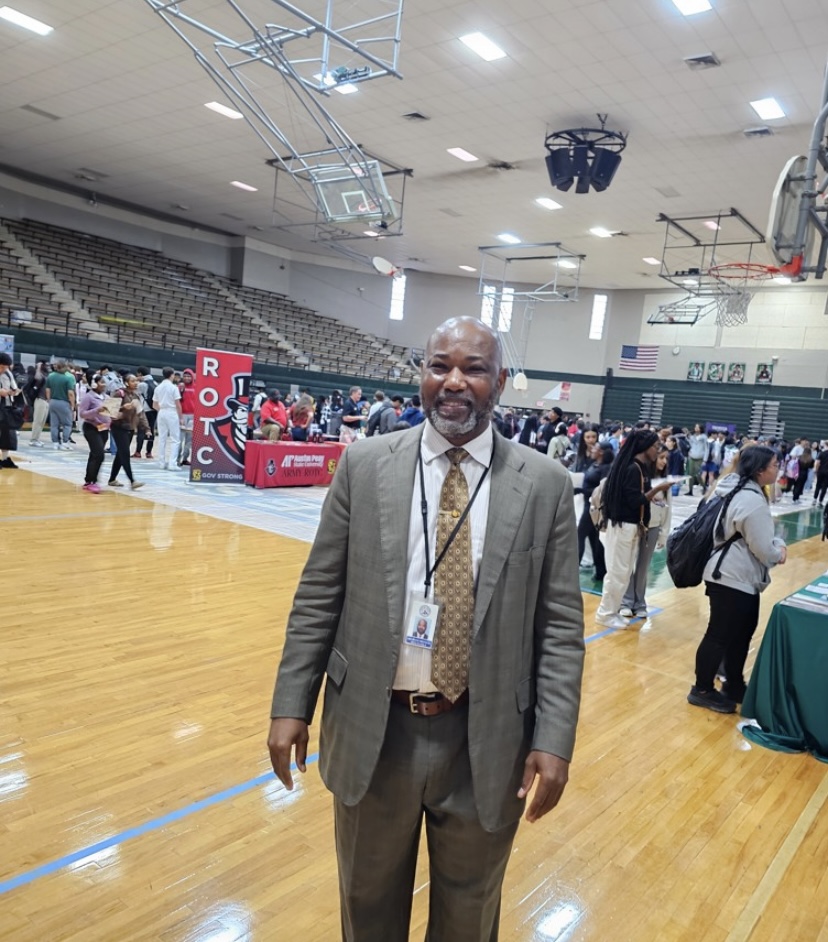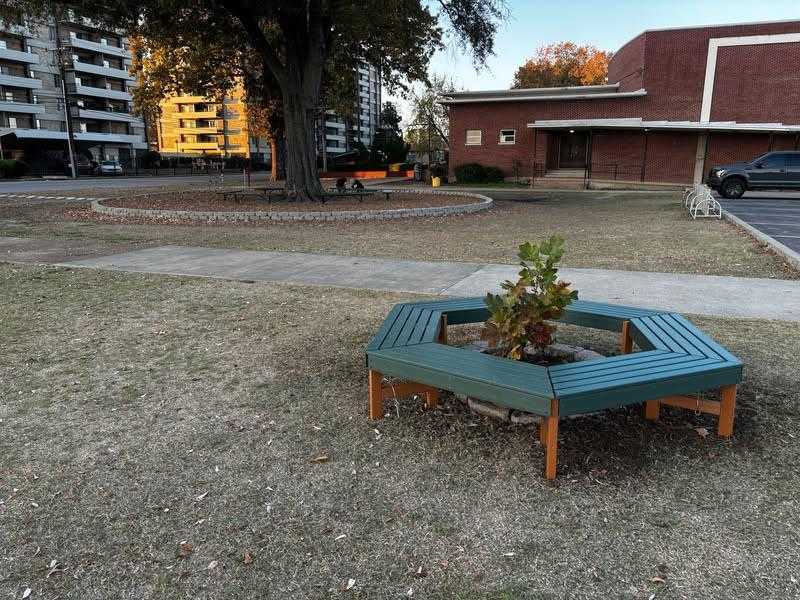Outside under the shade of the “Freshman tree,” many White Station students stand waiting at the end of a long day of school to get picked up while either listening to multiple conversations or shutting the world out with earbuds. Recently, however, instead of sitting on the cold, hard ground, there’s been another option — benches. And for that development, Luke Meng (11) is to thank.
Luke Meng is an Eagle Scout. Originally he started as a Cub Scout in second grade and then moved up to Boy Scouts in sixth. Now having reached the highest rank of Boy Scout, his only options are to get additional merit badges and potentially become a mentor as he becomes an adult. His brother, Shawn Meng, a student at the University of Chicago and alumni of White Station High School (WSHS), followed a similar path in his teen years.
“[Cub Scouts, Boy Scouts and Eagle Scouts are all ways] for young people to truly take initiative and enact positive change in their communities,” Shawn Meng said. “It’s [the] combination of leadership training, character building and practical skill development [which is] very valuable.”
A large part of Boy Scouts is life skills. Most will go on several camping trips, learning first aid and knot tying. Luke Meng and his troop recently went to Camp Courier in Mississippi. They also annually go to Kai Kima, a scout reservation in Arkansas. All of these trips help develop the scouts as survivalists and as people.
“Sports teams, extracurriculars, community service and other activities like scouting allow us to explore other aspects of the world around us,” Shawn Meng said.
As these life skills are built, scouts like Luke Meng learn how to communicate — especially in a team — and get involved with their community. All scouts abide by the Scout Law and Oath and work to gain leadership skills such as decision-making.
“Something we recite every meeting is that a scout is trustworthy, loyal, helpful, friendly, courteous, et cetera, et cetera,” Luke Meng (11) said. “And so that kinda instills in me a feeling of how I should act.”
As a way to demonstrate the skills they have learned, Boy Scouts complete a project to help their community and gain the ranking of Eagle Scout. To do this they pool together resources and people to get it done, also asking for donations and support from community leaders. Luke Meng’s project was to put the benches around the freshman tree as well as newly planted saplings. He picked this project to emulate the green benches that were present in his freshman year that rotted away.

“I chose to do [this project] because I always meet with my friends at the freshman tree to wait for rides,” Luke Meng said. “I realized that there wasn’t really anywhere to sit.”
There were other factors to his selection of the project, however, Luke Meng’s brother Shawn Meng was the one who first set up the retaining wall around the tree. Shawn Meng set a model for his brother and Luke Meng chose to follow in his footsteps and enhance the same area.
“I’m very proud to say that he’s accomplished what he’s done independently and successfully,” Shawn Meng said. “It’s not easy to complete a project, especially one with so many moving pieces, and he should be proud of himself too.”
Luke did face setbacks that complicated the project. The entire process took around a year, starting slow with cold calls and emails that were rarely reciprocated. Many of the places Shawn got resources from had nothing for Luke. Eventually Luke got a grant from the Ida Mae Family Foundation, which covered half his funds; the other half he raised through a GoFundMe page.
“I think my biggest fear in the project was that I wouldn’t be able to get enough people to come and help out,” Luke Meng said. “It turned out that a lot of people were very willing to come out and give back to the community.”

Through the fear and doubt, his family supported him and the final result has had positive implications for the student body. The amount of people and effort put into these benches is a testament to what happens when there is effective communication, apt leadership and an involved community.
“Do not undervalue the power of consistent effort,” Shawn Meng said. “If you are well-intentioned and truly want to benefit the community around you, it is likely that your community will also be supportive in your efforts.”




































